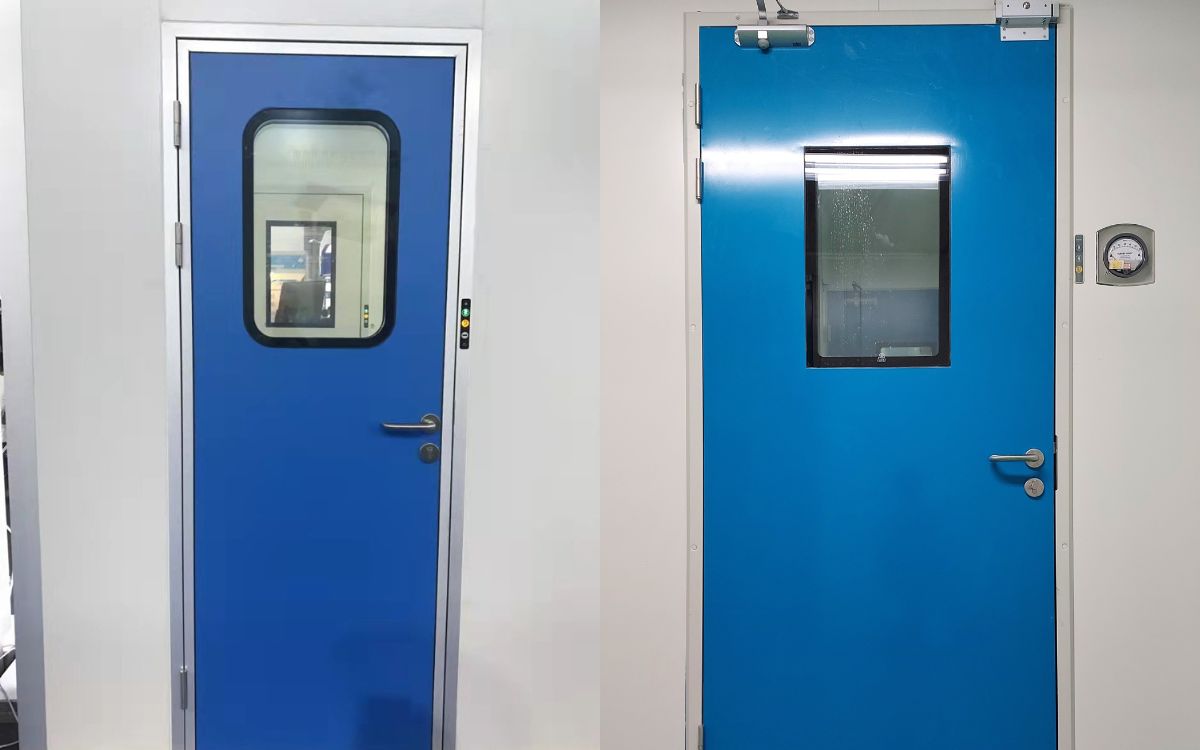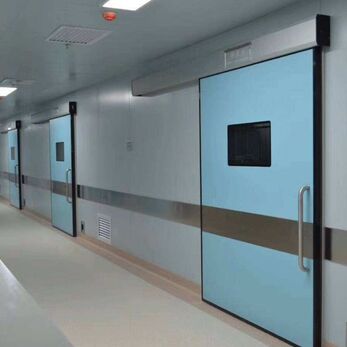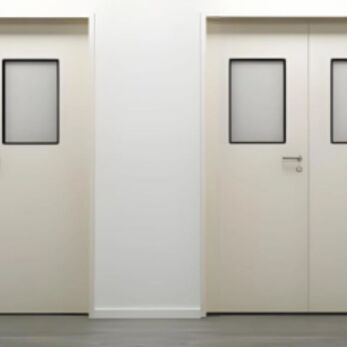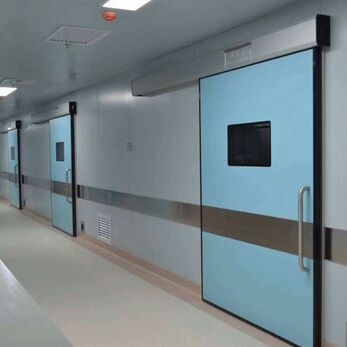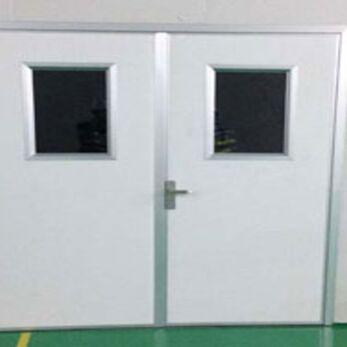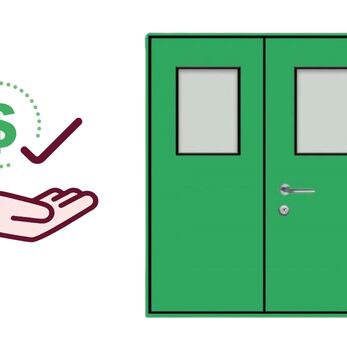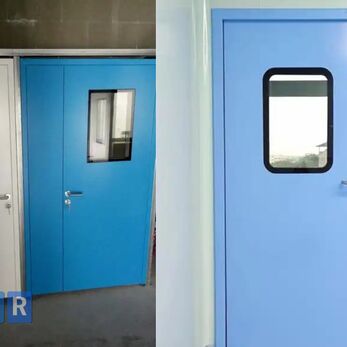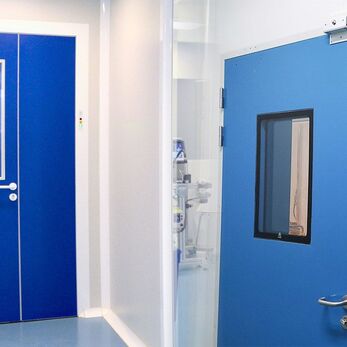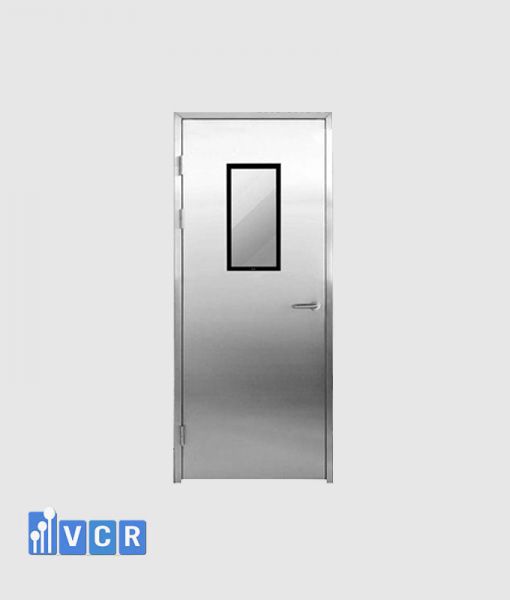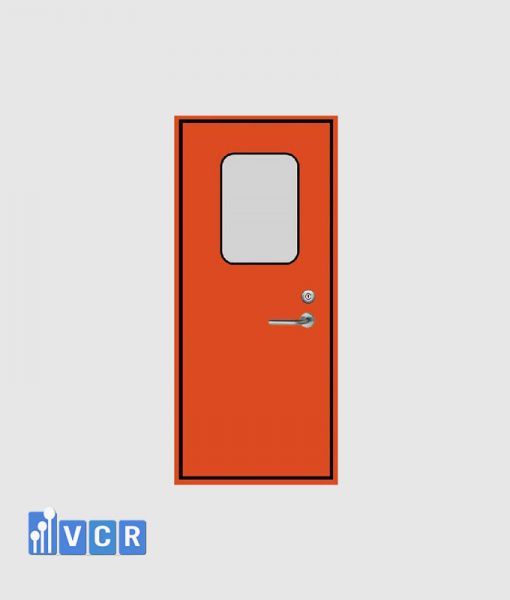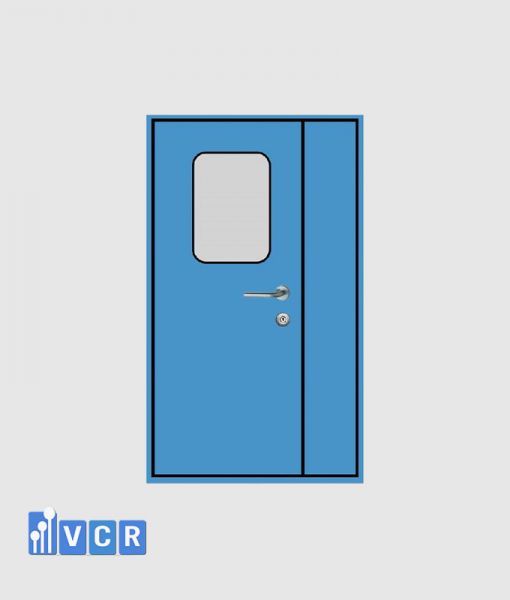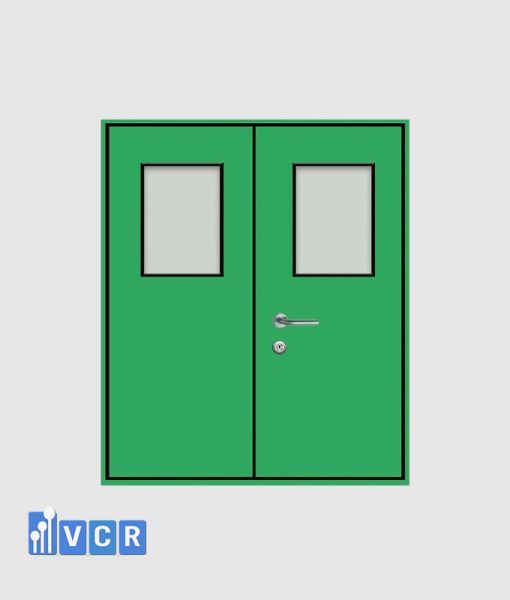Clean room doors are not only entrances but also important parts in controlling the environment, preventing dust and maintaining pressure between areas. This article summarizes 12 most frequently asked questions about clean room doors with answers from VCR experts, helping you choose the right type of door that meets GMP and ISO 14644 standards.
A cleanroom door is more than just an entryway - it is a critical component in maintaining a controlled environment by preventing the infiltration of dust, microorganisms, and pressure imbalances between different zones. Selecting the right type of door, ensuring proper installation, and performing regular maintenance are essential factors in keeping cleanrooms operating efficiently and in compliance with GMP, ISO 14644, or HACCP standards.
However, in practice, many users still have questions regarding door functionality, materials, opening mechanisms, pressure isolation capabilities, and installation requirements. In this article, VCR has compiled the most frequently asked questions - along with expert answers - to help you make informed decisions and choose the most suitable solution for each cleanroom area.
1. Frequently Asked Questions About Cleanroom Doors
1. What types of cleanroom doors are available?
Common types of cleanroom doors include:
|
Door Type |
Key Features |
Typical Applications |
|
Panel Door |
Made of powder-coated steel + PU, lightweight, insulated |
Cosmetics cleanrooms, electronics, gowning rooms |
|
Aluminum Frame Glass Door |
High aesthetics, easy visibility, lightweight |
Hallways, clean offices |
|
Stainless Steel 304 Door |
Chemical-resistant, corrosion-proof, easy to clean |
Pharmaceutical areas, labs, humid zones |
|
Aluminum Panel Door |
Aluminum frame + PU panel core, budget-friendly |
Food factories, utility areas |
Each type varies in sealing, materials, and pressure resistance. Choose based on GMP/ISO/HACCP standards.
2. Can cleanroom doors close automatically?
Yes. To maintain environmental control, especially in airlocks, doors are commonly integrated with:
- Hydraulic door closers: slow, safe closing for single-leaf doors
- Automatic motors: for sliding doors with sensor or push-button control
- Radar or foot switches: for touchless entry
Auto-closing prevents air leakage and reduces cross-contamination, especially when carrying goods or operating carts.
3. Can cleanroom doors maintain pressure differentials?
Yes. A proper design includes:
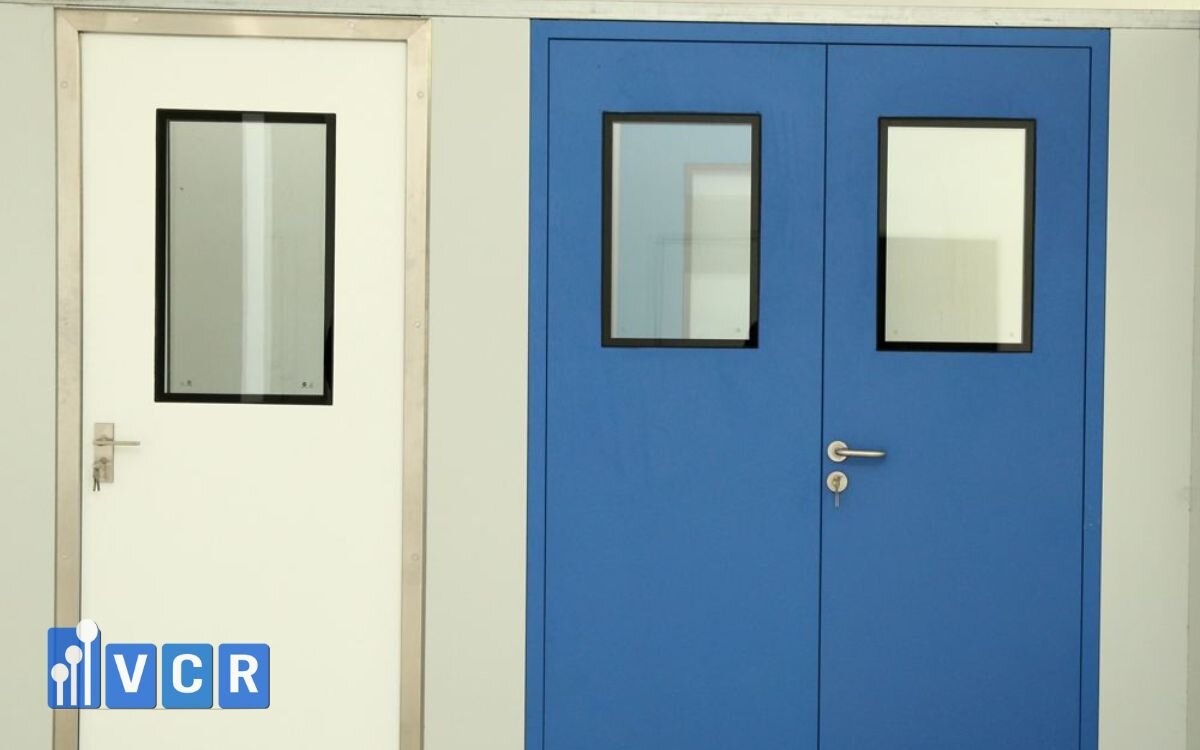
- Rubber gaskets sealed on all four edges
- Door leaf pressed tightly against the frame with adjustable hinges
- Secure locking mechanisms, often paired with interlock systems
These doors help maintain positive pressure in clean zones, preventing particle infiltration-crucial in weighing rooms, bio-storage, and packaging zones.
4. Should I choose Panel or Stainless Steel doors?
|
Criteria |
Panel Door |
Stainless Steel 304 Door |
|
Weight |
Lightweight, easy to transport/install |
Heavier, more robust |
|
Appearance |
Variety of colors, harmonious look |
Brushed finish, sleek industrial style |
|
Chemical Resistance |
Moderate |
High - resistant to alcohol, NaOH, etc. |
|
Suitable Sectors |
Cosmetics, electronics, light food areas |
Pharmaceuticals, healthcare, laboratories |
Choose stainless steel if regular cleaning with strong chemicals is required, ensuring durability and GMP compliance.
5. Can doors withstand high pressure differentials?
Yes. Specialized doors for high-pressure environments often feature:
- Reinforced steel frames
- Additional hinges for better load distribution
- Enhanced gaskets to prevent air leakage
- Thickened glass panels (if applicable)
Ideal for dispensing rooms or BSL labs requiring strict containment.
6. Can interlock systems be integrated?
Yes. Interlock systems ensure:
- Only one door opens at a time - preventing airflow disruption
- Automated lock/unlock via PLC or relay
- Control via buttons, sensors, or fingerprint scanners
VCR offers doors pre-equipped with interlocks, simplifying installation and control system setup.
7. Are there standard door sizes for cleanrooms?
Typical sizes include:
- 900x2100mm - single-leaf door for pedestrian access
- 1200x2100mm - double-leaf door for carts
- 1500x2100mm+ - for equipment and material handling areas
Custom sizing is available to ensure airtightness and compatibility with panel walls.
8. Is GMP certification required for cleanroom doors?
Doors don’t require separate GMP certification, but must meet:
- Dust-free, cleanable, chemical-resistant materials
- Smooth, seamless design to prevent particle buildup
- Stainless steel or anodized aluminum hinges and locks
For GMP/EU-GMP audits, request technical catalogs and validated design drawings from suppliers.
9. Can doors be custom-made?
Absolutely. At VCR, you can customize:
- Door leaf and frame dimensions
- Materials: Panel - Stainless Steel - Aluminum - Glass
- Opening style: single, double, sliding
- Integration with interlocks, motors, sensors
Our technical team offers design consultations and site surveys to ensure compatibility with your layout and SOPs.
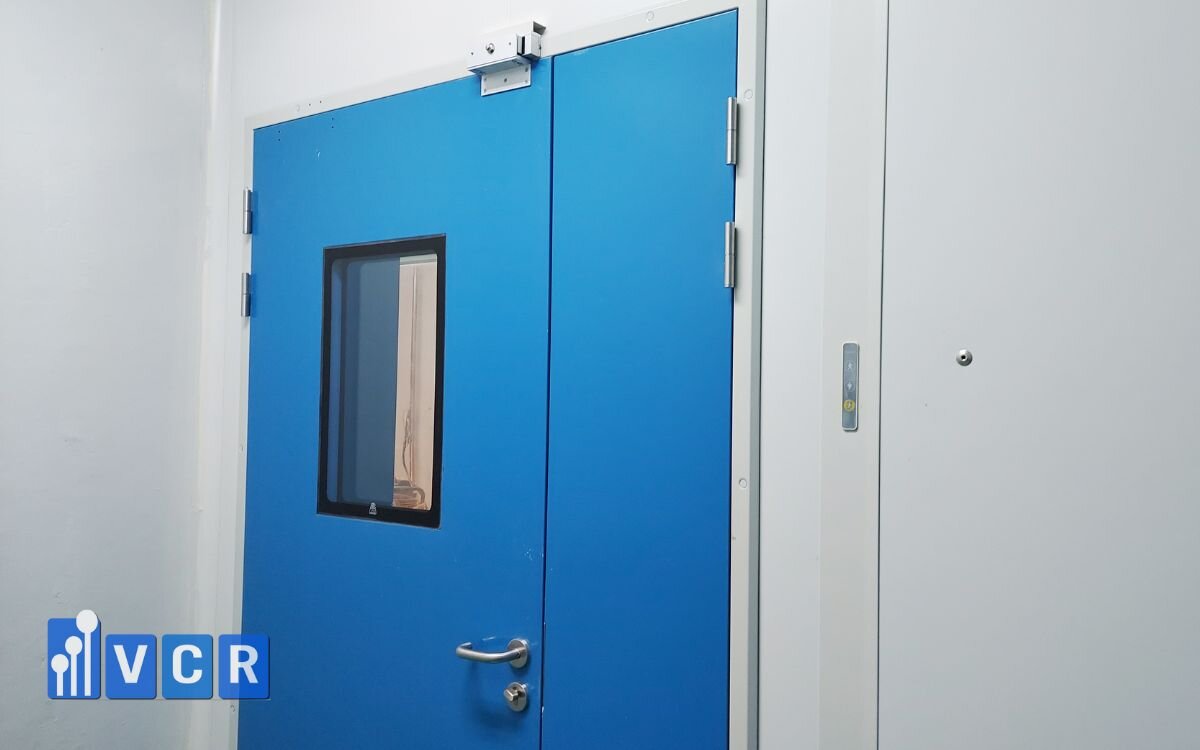
10. Is cleanroom door installation complicated?
Not if done professionally. Key considerations:
- Clearly define door swing direction (push/pull, left/right)
- Install correctly into panel or brick wall frames
- Configure properly if using interlock or motorized systems
- Ensure tight seals and stable pressure conditions
VCR offers full installation service-from measurement to final testing.
11. How should cleanroom doors be maintained?
To keep doors operating optimally:
- Regularly clean surfaces with soft cloth and neutral detergent
- Inspect hinges, locks, and closers for sagging or wear
- Replace gaskets if compressed or damaged
- For automatic doors: service motors, sensors, and circuits
Ideal maintenance frequency: every 3-6 months, depending on usage.
12. Can doors be opened during a power outage?
Yes, provided they have:
- Manual handles on both sides
- Emergency open mechanisms (for motorized systems)
- Backup power (UPS) for interlocks if needed
Critical in negative pressure zones or isolation areas to ensure emergency egress.
See more: Supplier of clean room doors meeting GMP standards according to ISO 14644
2. Need Help Choosing the Right Cleanroom Door?
With over 10 years of experience delivering GMP - ISO 14644-compliant cleanroom door solutions, VCR is proud to support hundreds of factories in the pharmaceutical, food, electronics, and cosmetics sectors across Vietnam.
Not sure whether to choose Panel or Stainless Steel?
Need help designing a 3-door interlock system for your airlock?
Want to custom order based on specific dimensions and materials?
Let our technical team assist you:
- One-on-one consultation via drawings or on-site surveys
- Customized door configuration for every cleanroom zone
- Fast quotations and on-time delivery
Contact us today for a free consultation
Hotline: 090.123.9008
Email: [email protected]
Website: https://cuaphongsachvcr.com/
Diep VCR




